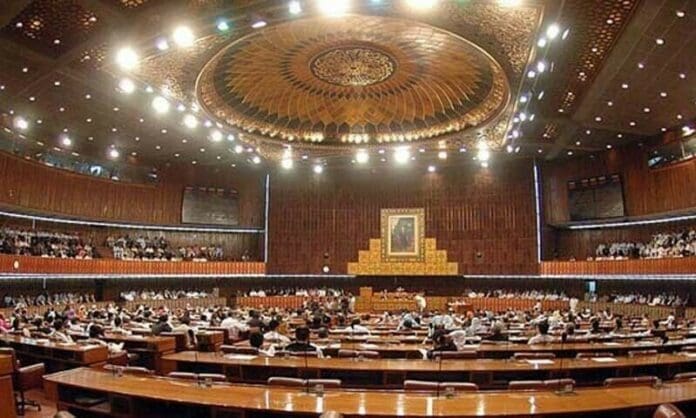After President Arif Alvi’s surprising statement that he did not sign the bills amending the Official Secrets Act and the Pakistan Army Act into law, it is crucial to understand the changes proposed by these bills. Let’s delve into the amendments made to both acts.
Official Secrets (Amendment) Bill, 2023:
The amendments to the Official Secrets Act have expanded the definitions of military installations and included digital and modern means of communication within the law. This could potentially bring vloggers and bloggers under the jurisdiction of the act.
Furthermore, the definition of a “document” has been broadened to include any form of written, unwritten, electronic, digital, or tangible instrument related to military procurements and capabilities.
The proposed law introduces a new definition of an “enemy” as any person directly or indirectly, intentionally or unintentionally collaborating with a foreign power or agent, non-state actor, organization, entity, association, or group engaged in activities harmful to Pakistan’s safety and interests. However, experts argue that this section goes against the principles of natural justice by equating unintentional contact with planned espionage.
The bill also creates a new offense of unauthorized disclosure of identities of intelligence agencies’ members, informants, or sources, punishable by up to three years in jail and a fine of up to Rs10 million.
Amendments have been made to clauses concerning prohibited areas, making it an offense to access, intrude, approach, or attack any military installation, office, camp office, or building, even during peacetime.
The law empowers the Federal Investigation Agency (FIA) and intelligence agency officials to investigate suspects for violating the Official Secrets Act. It also outlines the role of investigating officers, the establishment of joint investigation teams, and the submission of challans to a special court.
The proposed law addresses the admissibility of evidence collected during the course of an inquiry or investigation, including electronic devices, data, information, documents, or material facilitating the commission of offenses under the act.
Pakistan Army (Amendment) Act, 2023:
The Army Act amendment bill introduces stringent punishments, including up to five years of rigorous imprisonment, for individuals found guilty of disclosing information prejudicial to Pakistan’s security and interests.
One of the amendments grants more powers to the army chief and prohibits ex-servicemen from engaging in politics or ventures conflicting with the army’s interests. It also proposes imprisonment for defaming the army.
The bill introduces Section 26-B, which prohibits any person subject to the army act from participating in any political activity for two years after retirement, release, resignation, discharge, removal, or dismissal from service. Similarly, those who served in sensitive positions are forbidden from engaging in political activity for five years after leaving the army.
Violations of these provisions can lead to punishments of up to two years of rigorous imprisonment.
Section 55-A prohibits anyone subject to the army act in the past five years from entering into employment or engagement with entities conflicting with the army’s activities, unless they obtain prior approval from the army chief. Violators of this provision can be imprisoned for up to two years or fined.
The bill also addresses offenses committed under the Pakistan Electronic Crime Act (Peca) 2016, with mala fide intentions to undermine, ridicule, or scandalize the armed forces. Punishments for such offenses follow the provisions of the Peca law.
Moreover, intentional ridicule, scandalization, or attempts to lower the armed forces of Pakistan or any part thereof can result in imprisonment of up to two years or fines.
The amendments allow the army chief to delegate their powers and functions conferred by the act to subordinate officers or authorities through Section 176-C. Additionally, Section 176-E specifies that the laws under the act will prevail over any inconsistent laws, rules, or regulations.
Lastly, Section 175-E empowers the army, under the direction or concurrence of relevant authorities, to carry out activities related to national development and the advancement of strategic interests. All previously undertaken activities shall be deemed to have been conducted under this act.
In conclusion, the amendments made to both the Army Act and the Official Secrets Act have brought significant changes to the legal framework governing matters related to national security and state secrets.
